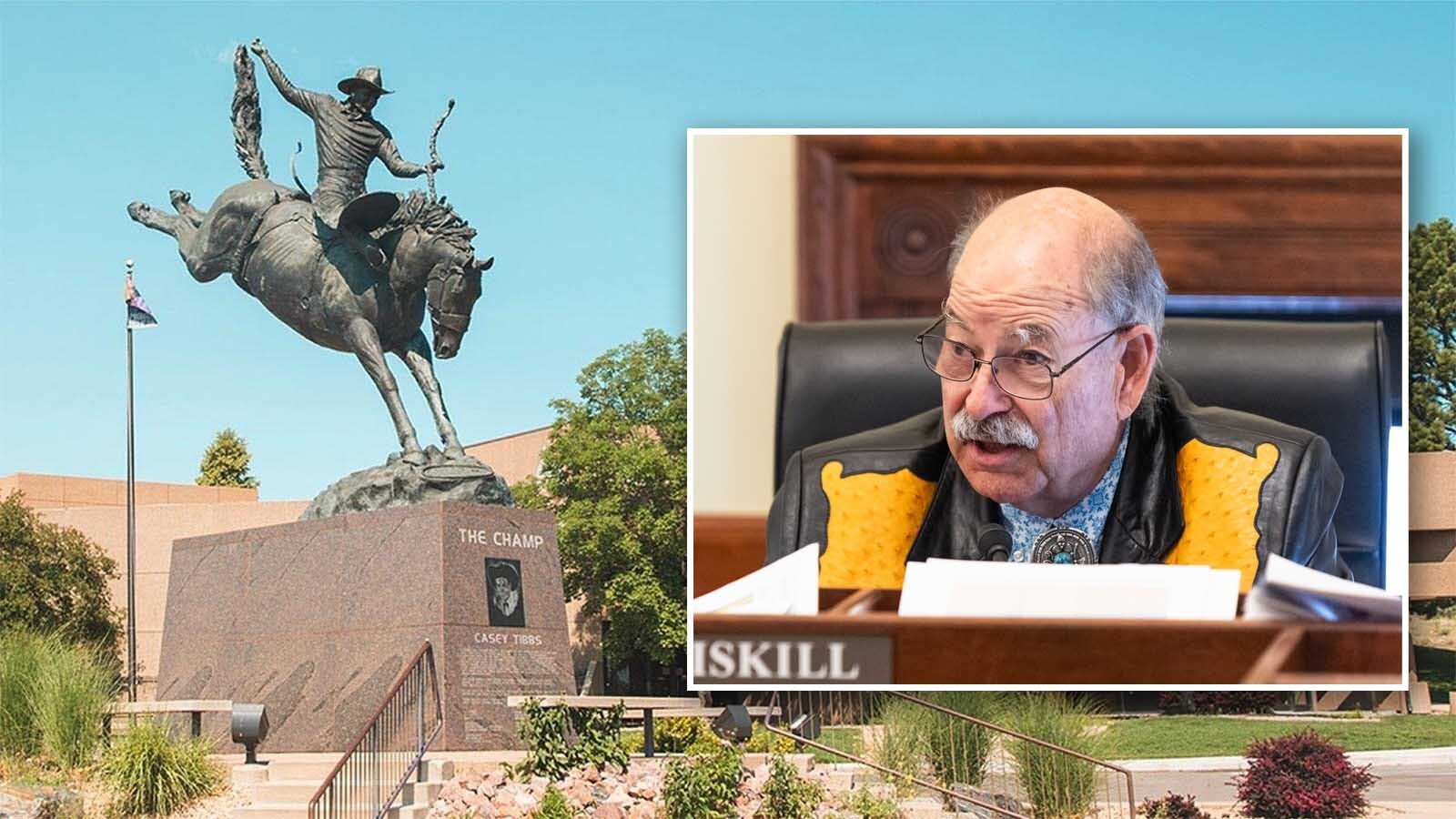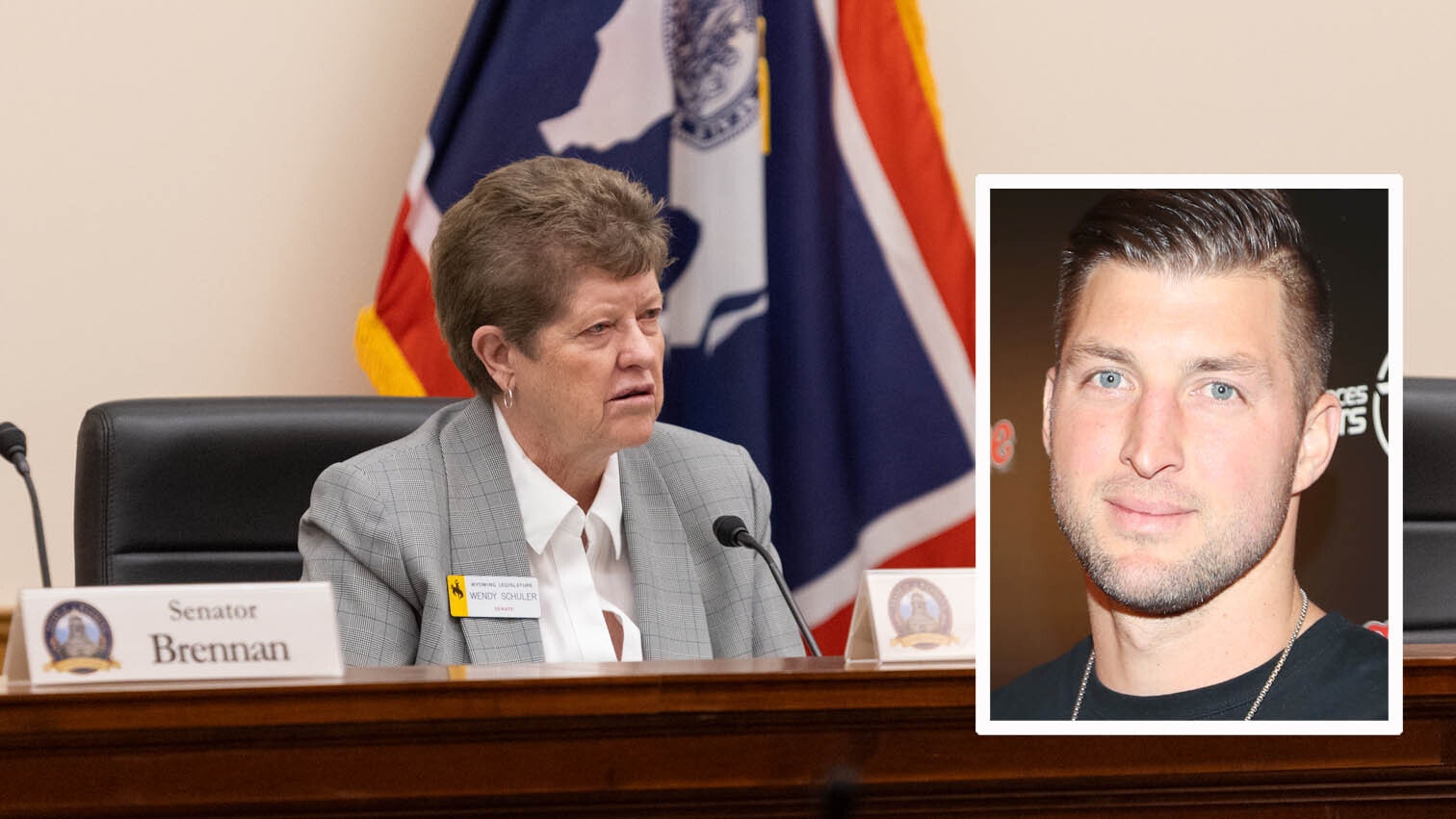WASHINGTON, D.C. — Cornerstones of the Republican agenda such as increasing oil production and limiting Medicaid are riding on the One Big Beautiful Bill Act, and the multitrillion-dollar budget package is in some trouble.
U.S. Senate Majority Whip John Barrasso of Wyoming and the other members of the chamber’s Republican leadership team were coping Thursday with the latest rulings from the Senate referee — rulings siding with Democrats on content the minority party wants stripped out.
“Republicans are scrambling behind closed doors to rewrite their bill,” Senate Minority Leader Chuck Schumer, D-New York, said on the floor Thursday.
Barrasso also spoke on the floor Thursday, but did not address the rulings by the parliamentarian. He touted the bill as an “economic prosperity package,” citing language to preserve 2017 income tax cuts that would otherwise expire.
The Senate GOP with its 53-47 edge wants to move the package on a simple-majority vote instead of the 60 needed to overcome a Democratic filibuster. But this process, called budget reconciliation, is subject to the Byrd Rule, which prescribes limits on how broad the text can be.
Senate Parliamentarian Elizabeth MacDonough has dealt Republicans a series of defeats, the latest of which were publicized by Democrats on Thursday, as to what can be included in the bill.
She has sided with Democrats on point-of-order challenges to key sections on energy, health care and more. She has also ruled for Republicans in some cases.
Barrasso Spokeswoman: No Big Deal
“The Byrd Rule is a back-and-forth process,” Barrasso spokeswoman Laura Mengelkamp told Cowboy State Daily by email late Thursday afternoon. “Republicans and Democrats present their arguments, the Senate Parliamentarian rules, and they give feedback on how to make certain provisions compliant with the Byrd Rule.”
Republicans are not bound by MacDonough’s rulings, but historically, both parties have respected the parliamentarian’s decisions under the Byrd Rule.
Mengelkamp did not respond to Cowboy State Daily’s questions on whether the GOP will follow MacDonough’s rulings. Some Republicans have said the party should ignore the verdicts of the unelected Senate officer.
Senate Republicans have spent nearly a month drafting language to parallel the version of the bill that the House passed in late May by a single vote. Now, no one knows what the Senate version will look like in light of MacDonough’s ongoing hammer strikes.
Options Going Forward
If Senate Republicans adhere to MacDonough’s decisions, they could pass a hollowed-out measure on a simple-majority vote. They could also keep their bill intact by using regular order, which applies to most types of legislation, but that would mean getting help from Democrats to find 60 votes total.
Senate Democrats without exception have been blasting the bill for weeks. All House Democrats voted against it last month.
Senate Republicans could continue — as Mengelkamp referred to — rewriting provisions to try to bring them into compliance with the Byrd Rule and thus continue their strategy of moving the bill on a simple-majority vote.
They have gone this route with some language over the past few weeks, but MacDonough keeps finding new violations.
Senate Republicans could simply drop some language altogether, or they could ignore MacDonough’s nonbinding rulings under the Byrd Rule.
A spokeswoman for Senate Majority Leader John Thune, R-South Dakota, did not reply to a Cowboy State Daily inquiry about the party’s next steps.
The Byrd Rule, named for a former senator, is part of a 1974 budget-making law. The rule says that bill provisions made under the budget reconciliation process to avoid the 60-vote threshold must not stray too far from revenue, tax and debt issues.

Merkley Tallying Dems’ Wins
U.S. Sen. Jeff Merkley of Oregon, the top Democrat on the Senate Budget Committee, issued a series of statements this week adding up the challenges Democrats have won under the Byrd Rule.
These include wins on language drafted by the Energy and Natural Resources Committee chaired by U.S. Sen. Mike Lee, R-Utah, and the Finance Committee headed by U.S. Sen. Mike Crapo, R-Idaho. Barrasso serves on both of those panels.
One of these Democratic wins was on Lee’s proposal to sell public lands. That proposal was a rarity in that it had bipartisan opposition. Nearly all of the challenges concern content that falls along party lines.
Rob Wallace, a Wyoming resident who was assistant Interior Secretary in the first Trump administration, told Cowboy State Daily that the downfall of Lee’s bill was of his own making. It generated widespread opposition because “he cut the public out of the discussion,” he said.
MacDonough’s rulings are not made public by her office.
Cowboy State Daily emailed Mengelkamp the lists compiled by Merkley. She did not dispute the provisions he cited by section number, though he used his own words in some cases to characterize the provisions.
According to Merkley, MacDonough found that the provisions of the bill in violation of the Byrd Rule include language to:
• Deem offshore oil and gas projects as automatically compliant with the National Environmental Policy Act.
• Remove the Secretary of the Interior’s discretion to reduce fees for solar and wind projects.
• Allow natural gas exporters to pay a fee to have their project be deemed “in the public interest,” which is a requirement for approval.
• Deny federal funding to states for Medicaid coverage for illegal immigrants. Barrasso has repeatedly touted this provision.
• Expand Pell Grants to programs at unaccredited and for-profit institutions.
• Prohibit certain states from increasing the rate of current Medicaid provider taxes. This provision has been a key target for Senate Democrats from the get-go.
• Prohibit federal cost-sharing reduction payments to qualified health plans that cover abortion services.
• Change language pertaining to the Affordable Care Act that would — according to Merkley — make health insurance more expensive.
‘Technical Feedback’
Still under review by MacDonough are challenges to language that would streamline coal mining applications and require oil and gas lease sales in the National Petroleum Reserve-Alaska, among others, said Merkley.
U.S. Senate Minority Whip Dick Durbin, D-Illinois, said on the floor Thursday that MacDonough has ruled for Democrats on a provision to limit judicial power.
That provision lines up with Republicans’ ire at federal judges for issuing injunctions against President Donald Trump.
“Senator Barrasso and Republicans have and will continue to be very aggressive in their solutions for the American people,” Mengelkamp said.
The back-and-forth concerning the Byrd Rule “is exactly what’s happening right now as part of the normal process,” she said. “Republicans received technical feedback from the parliamentarian on a number of provisions. They are working to address it and will move forward.”
Sean Barry can be reached at sean@cowboystatedaily.com.





